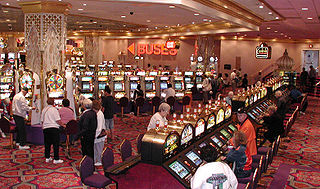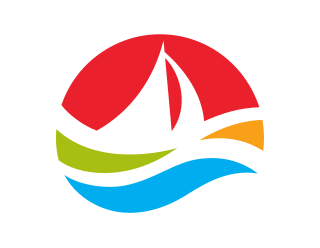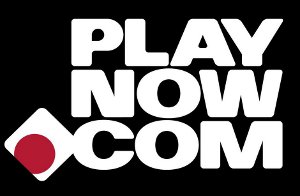
A lottery is a form of gambling that involves the drawing of numbers at random for a prize. Some governments outlaw lotteries, while others endorse it to the extent of organizing a national or state lottery. It is common to find some degree of regulation of lottery by governments. The most common regulation is prohibition of sale to minors, and vendors must be licensed to sell lottery tickets. Although lotteries were common in the United States and some other countries during the 19th century, by the beginning of the 20th century, most forms of gambling, including lotteries and sweepstakes, were illegal in the U.S. and most of Europe as well as many other countries. This remained so until well after World War II. In the 1960s, casinos and lotteries began to re-appear throughout the world as a means for governments to raise revenue without raising taxes.
Loto-Québec is a provincial crown corporation mandated to "conduct and administer lottery schemes and to operate businesses which are incidental to the operation of a State casino" in the province of Quebec, Canada.

Ontario Lottery and Gaming Corporation, known for corporate branding purposes simply as OLG since 2006, is a Crown corporation owned by the Government of Ontario, Canada. It is responsible for the province's lotteries, charity and Aboriginal casinos, commercial casinos, and slot machines at horse-racing tracks. It was created in April 2000 when the Ontario Lottery Corporation (OLC) was merged with the Ontario Casino Corporation (OCC), established in 1994. Prior to 2006, the combined entity was known in short form as the OLGC. OLG employs over 8,000 individuals throughout Ontario.
A video lottery terminal (VLT), also sometimes known as a video gaming terminal, video slots, or the video lottery, is a type of electronic gambling machine. They are typically operated by a region's lottery, and situated at licensed establishments such as bars and restaurants.

Lotto 6/49 is one of three national lottery games in Canada. Launched on June 12, 1982, Lotto 6/49 was the first nationwide Canadian lottery game to allow players to choose their own numbers. Previous national games, such as the Olympic Lottery, Loto Canada and Superloto used pre-printed numbers on tickets. Lotto 6/49 led to the gradual phase-out of that type of lottery game in Canada.
Lotteries in Australia include various lottery related products licensed by the Lott and Lotterywest Australian lottery companies. Lotteries operators are licensed at a state or territory level, and include both state government-owned, not-for-profit and private sector companies. Most major Lotteries have now moved into the online marketplace.

Gambling in the United States is legally restricted. In 2008, gambling activities generated gross revenues of $92.27 billion in the United States.

The Atlantic Lottery Corporation (ALC), branded as simply Atlantic Lottery or Loto Atlantique, is a Canadian organization that provides government-regulated and responsible lottery products to Atlantic Canadian adults who choose to play. They offer a wide range of games, from draw games to online bingo; breakopen tickets to sports wagering; and games in both social settings and online.
The Interprovincial Lottery Corporation (ILC) is a Canadian organization that operates lottery games. It is owned jointly by the five provincial lottery commissions. ILC's headquarters are located in Toronto, Ontario.

Millionaire Life was a national promotional lottery game that offered a top prize of $1 million a year for 25 years, four prizes of $1 million and 20 prizes of $100,000. It has been run four times across Canada between 2007 and 2011.

The British Columbia Lottery Corporation is a Canadian Crown corporation offering a range of gambling products including lottery tickets, casinos and legal online gambling. It is based in Kamloops, with a secondary office in Vancouver. It consists of three business units, Lottery, Casino and eGaming; and five support divisions, Human Resources, Information Technology, Compliance & Security, Finance, and Communications. Its annual revenues exceed CDN $3.1 billion. It has 890 direct employees. Its service providers, who run casinos on its behalf under contract, have an additional 8,300 employees.

The Kansas Lottery is run by the government of Kansas. It is a charter member of the Multi-State Lottery Association (MUSL).
Crown corporations in Canada are government organizations with a mixture of commercial and public-policy objectives. They are directly and wholly owned by the Crown.
Most forms of gambling in Japan are generally banned by the Criminal Code chapter 23; however, there are several exceptions, including betting on horse racing and certain motor sports.

The National Lottery is the state lottery of Republic of Ireland. It was created when the Republic of Ireland government passed the National Lottery Act, 1986 to help raise funds for good causes. The eligible causes are sport and recreation, health and welfare, national heritage and the arts, the Irish language, and the natural environment.

A lottery is a form of gambling which involves the drawing of lots for a prize. Lottery is outlawed by some governments, while others endorse it to the extent of organizing a national or state lottery. It is common to find some degree of regulation of lottery by governments. In several countries, lotteries are legalized by the governments themselves.
Gambling in Estonia is relatively young. While Estonia was a part of the USSR, all types of gambling activities were banned. Despite the prohibition, illegal casinos still functioned, but the real history of gambling started in 1994-1995 when the first Lottery Act of 1994 and the first Gambling Act of 1995 came into power. As the capitol, Tallinn has more casinos than any other Estonian town. As of September 2010, there were 33 casinos in Tallinn. That's 3 times less than in 2008, when 91 gambling venues operated in this city. According to experts, the main reasons for such decrease were the consequences of the crisis and the adoption of the new gambling law in 2008. The legal age for playing at casinos is 21.

PlayNow.com is an online gambling website that is owned and operated by the British Columbia Lottery Corporation (BCLC).
Legal forms of gambling in the U.S. state of Texas include the Texas Lottery; parimutuel wagering on horse and greyhound racing; charitable bingo, pull-tabs, and raffles; and three Indian casinos.
Gambling in the Philippines has been present in the country since at least the sixteenth century. Various legal and illegal forms of gambling are found almost all over the archipelago. The government manages gambling through the Philippine Amusement and Gaming Corporation (PAGCOR) a state-owned enterprise which both operates a number of individual casinos and in turn acts as a regulator to privately owned casino operators. Since 2016 PAGCOR has also granted operating licenses and overseen the regulation of growing online gambling sector serving offshore markets. Casino gambling and integrated resorts have become a key component of the Philippines appeal as a tourist destination with more than twenty casinos found in Metro Manila alone.









